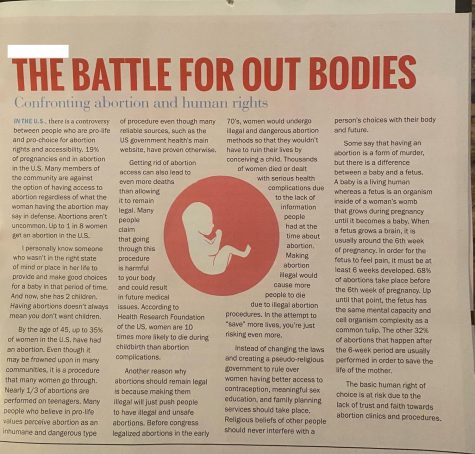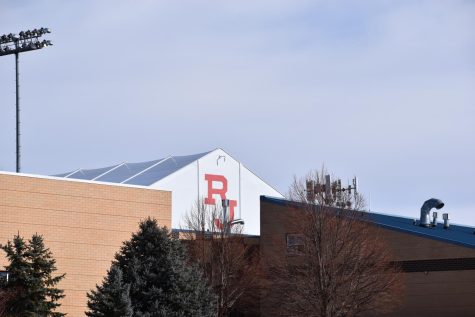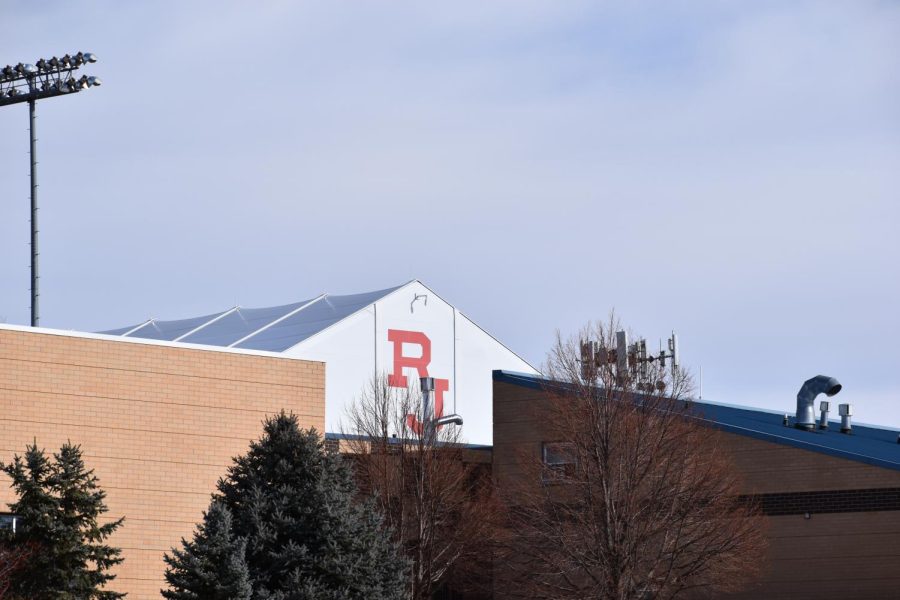The staple “RJ” is seen on buildings throughout Regis Jesuit High School’s expansive campus, also serving as the moniker for their media site: RJ Media.
What Happened?
Pro-choice opinions expressed by student media at Regis Jesuit led to retraction and the firing of two advisors -- and controversy for many.
Journalism is an art form, a vehicle for expression protected by the first amendment — in most cases. Often, the media is portrayed as a villain, yet it remains a foundational pillar of American democracy. But there is a glaring gap in the protective cloak of the first amendment: private schools — a fact which Regis Jesuit High School is facing the consequences of.
As a student journalist, Regis’ case is of particular interest to me –and so many other Colorado journalists. The story has been posted by so many publications by now, each one a slightly different iteration of the original Sentinel story. But in case you managed to miss it, here’s the scoop.
On Dec. 17, the winter issue of Regis’s quarterly student magazine, Elevate, was retracted after apparent backlash from parents regarding an article it contained. Entitled “The Battle for Out Bodies”, the piece presents a clearly pro-choice perspective, reading, “Religious beliefs of other people should never interfere with a person’s choices with their body and future.”

Removed days after publication, in its place appeared a letter signed by the school’s president, David Card, and principal and Theology teacher, Jimmy Tricco, explaining the issue’s retraction.
“An opinion piece that presented a stance on abortion clearly in opposition to Church teaching was included that we found both deeply troubling and unacceptable,” read the letter. “We failed our students in providing proper guidance in how to consider matters involving our firmly held beliefs…We are committed to ensuring that this does not happen again.”
Not knowing all that much about Regis Jesuit High School myself, I began digging…and discovered an interesting dichotomy. The letter seemed to be in direct conflict with statements on the school’s webpage. “We are called to create environments in which our students may encounter and engage multiple points of view that are presented thoughtfully and respectfully,” read one such statement. But the repercussions did not end with seemingly contradictory statements. In fact, it was only the beginning.
“After I read the article in the magazine, I saw an Instagram post from a Regis alumna regarding that two teachers had been fired over this article,” said a junior at Regis, who requested anonymity. “After I got back to school, one of my teachers told me that both of the teachers that were fired were very pro-life.” She describes this as the biggest repercussion, explaining that one of those teachers was not only a devout Catholic but a highly decorated teacher. Both teachers were advisors for the retracted magazine edition.
Such an extreme reaction, naturally, elicited a profusion of questions for me. Answers, however, were not so easy to find. I set out to contact staff members and administrators at Regis, but each ended in a dead-end, redirecting me to their Director of Communications –understandable, but disappointing nonetheless. Redirection after rejection after redirection.
Finally, a response from the woman herself: their Director of Communications, Charisse Broderick King. “Thank you for reaching out, but we respectfully decline your invitation. As a rule, we do not comment on personnel matters,” said King. “We are currently taking steps to consider the magazine’s editorial process to provide an avenue for student expression while ensuring it is compatible with our Catholic, Jesuit mission.” A well-worded non-answer, maybe, but still telling. Though administration appears to be keeping the story close and controlled, according to one Regis senior, they truly may be working toward more of a resolution.
“It sounds like Regis, even after taking action, is still working with the Archdiocese and defending their ties to the Church,” said a senior at Regis. Though he was not afraid of school repercussions, his name remains redacted in an abundance of caution. “For this reason, I feel that nobody, including the administration who made it happen, was pleased with the events or their repercussions.” And so, the story may not yet be over as the school more closely considers the delicate balance of student expression and religious tenements. For now, their tight grip on the story does not appear to be loosening. But for Regis students, avenues for discussion have been opened — a fact which gives me, as a student journalist who tends to over-discuss everything — faith.

“The school’s principal and president talked to the entire student body and it was evident that they were not particularly happy with the situation or its repercussions either,” said a senior at Regis. “They also offered to answer any questions people may have privately but made it clear that some information regarding what happened was confidential.” He also spoke of open discussions with teachers in various classes. Though it seems students were given outlets for discussion about the event, they were also advised of certain ways to handle the situation.
“Each class individually was pulled into the auditorium to reference this magazine, and we were told by administration that if we felt “overwhelmed” we shouldn’t post on social media about it,” said the Regis junior. “We weren’t directly condemned or encouraged. Talk of the magazine issue has been running rampant, but for the most part it’s been kept quiet and is only spoken in “safe spaces.”’ Despite these in-school discussions, some students I reached out to declined to comment, most notably media students who explained that they were advised not to comment.
“I wish I could help you in the name of student journalism, but my hands are tied at the moment,” said one student. Indeed, because Regis is a private, religious school, their media students are not afforded the same protections and freedoms as Colorado public school media students. It is undoubtedly a point of frustration for many media students — but an inescapable fact.
“When a public school publishes a magazine, it is owned by the students,” said one student. “When a private school publishes a magazine, it is owned by the school.”
